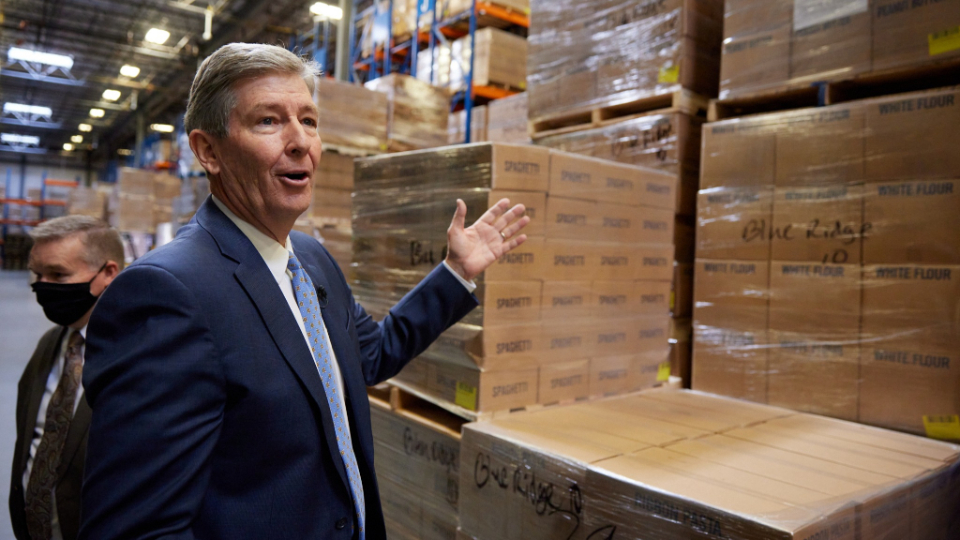The Church of Jesus Christ of Latter-day Saints is partnering with the Black 14 Philanthropy to bring 180 tons of food to nine cities throughout the United States to help people in need.
-
- black 14
- black 14
- black 14
- black 14
- black 14
- black 14
- black 14
- Black 14
- Black 14
- Black 14
- Black 14
- Black 14 Cathedral Home
- Black-14-Wind-River-4.jpg
- Black 14
- Black-14-Wind-River-1.jpg
- Black 14
| Temple Square is always beautiful in the springtime. Gardeners work to prepare the ground for General Conference. © 2012 Intellectual Reserve, Inc. All rights reserved. | 1 / 2 |
The other eight locations to receive food are:
- Baltimore, Maryland
- Battle Creek, Michigan
- Boys Town, Nebraska
- Charleston, South Carolina
- Denver, Colorado
- Ethete, Wyoming
- Pittsfield, Massachusetts
- Wilmington, North Carolina
The Black 14 Philanthropy was founded in 2019 by the 11 surviving former members of the 1969 University of Wyoming football team. The squad’s head coach dismissed the group of 14 Black players prior to a game against Church-owned Brigham Young University (BYU) for asking to protest a Church policy that prevented Black men from receiving the priesthood at that time. (The Church’s policy was changed in 1978 and added to the faith’s scriptural canon.) Similar actions had been taken in the previous 12 months by student-athletes at San Jose State University and the University of Texas at El Paso.
“I am overwhelmed by the deliveries currently underway to have a joint cooperative effort to assist those in need,” said Elder Larry Echo Hawk, who was a member of the BYU football team in 1969.
“When you go through something like that, a lot of people get hurt, a lot of organizations get hurt,” says Mel Hamilton, one of the original Black 14.
Some on the BYU side were hurting as well, including Elder Echo Hawk, a Native American who is now an emeritus Church General Authority Seventy (he served from 2012 to 2018). He started the game for BYU on the defensive side of the ball.
“I was one of the few racial minorities on the BYU football team,” Elder Echo Hawk says. “It was a challenging situation for me personally.”
Despite this uncomfortable past, a steady healing is happening as both sides embrace each other in a warm, unifying spirit of forward-thinking goodwill.
“I must do everything I can to plaster all the cracks made in the walls of that relationship. [It] was a rift, not a hate,” Hamilton says. “My mom said, ‘God will tell you what to do. All you have to do is listen.’ So, I’m listening.”
Hamilton has been listening to and nurturing relationships with the Church since 1980. In 2019 he was invited to Church headquarters, where he first saw the epicenter of the Church’s food distribution operation.
Hamilton stresses “the loving relationship that the Black 14 and The Church of Jesus Christ of Latter-day Saints are trying to initiate. I want people to realize,” he says, “that we’re working together, and will continue to work together, to strengthen the love between people—even people with differences.”

black 14
Elder S. Gifford Nielsen, a General Authority Seventy, discusses the Church’s partnership with the Black 14 Philanthropy while at the Bishops’ Central Storehouse in Salt Lake City on Friday, November 13, 2020. The Church is partnering with the Black 14 Philanthropy to bring 180 tons of food to nine cities throughout the United States to help people in need.2020 by Intellectual Reserve, Inc. All rights reserved.Elder S. Gifford Nielsen, a General Authority Seventy, a former BYU All-American quarterback (1973–77) and National Football League quarterback (1978–1983), also spoke of the enduring bond of friendship that has developed between the Black 14 and Church leadership.
“When I became acquainted with Mel, I was deeply moved knowing the Church could offer its resources to help the Black 14 provide education and nourishment for those in need,” Elder Nielsen says. “We have become dear friends and close allies in a unified purpose—helping our brothers and sisters. We are honored to partner with them, assisting in the health and development of children. Significant changes are happening from our shared vision.”
“We are grateful for the Black 14 and their desire to help those in need," said Elder Echo Hawk. "Elder Nielsen and Mel Hamilton have led the way in showing what forgiveness looks like.”
These efforts of racial reconciliation and community service come a month after Church Prophet and President Russell M. Nelson called on Latter-day Saints everywhere to “lead out in abandoning attitudes and actions of prejudice” and to “promote respect for all of God’s children.”